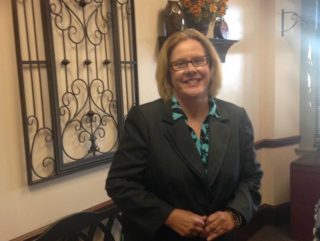Physician, hospital and insurer groups each expressed concerns Tuesday about Georgia Senate legislation that aims to prevent “surprise billing’’ of patients.

The Senate Health and Human Services Committee heard testimony on a proposal to halt these medical bills, which can come from ER doctors, anesthesiologists, radiologists, pathologists and others who are not in a patient’s insurance network — even though the hospital where they work is.
“It’s a very complicated issue,’’ said Sen. Renee Unterman (R-Buford), who chairs the panel and is a nurse by profession. She is the sponsor of Senate Bill 8.
Health insurers and medical providers can’t agree on a solution, she said.
“It’s like putting cats and dogs in a room,’’ she said. “The one that suffers the most is the consumer.”
Perhaps the most compelling testimony came from a consumer who’s also the wife of a House member.
Prior to the debate on surprise billing, the committee passed a bill that would allow police and emergency crews to transport a person in a mental health crisis to a physician or a hospital for involuntary treatment without having to arrest that person first.
Casey Snyder, the Gwinnett County fire chief, told the panel that his crews are dispatched about eight times a day for mental health episodes. “These folks don’t need to be arrested,’’ he said. “They need to be in a medical facility.”

The panel also voted to lower the limit of THC in medical marijuana from 5 percent to 3 percent. THC is the ingredient in marijuana that produces the “high.” Georgia set the 5 percent level when passing a medical marijuana bill two years ago.
Senate Bill 16 also adds autism to the eight medical conditions that currently qualify a Georgian to get a permit for cannabis oil.
The sponsor of the legislation, Sen. Ben Watson, a Savannah Republican and a physician, said 1,300 Georgians have received permits to possess the oil.
“There have been no reports of any abuse at all’’ in how people use the medicine, he added.
The two current proposals on surprise billing — Unterman’s in the Senate and one in the House — call for greater transparency about which doctors are in an insurer’s network, and an estimated cost of the procedure.
The Unterman proposal would also create a database of reasonable charges for a procedure. If a bill is disputed, the insurer and doctor would have to work out a resolution.

“I have tried my best to be fair,’’ said Unterman. “To listen to both sides.”
Representatives from the insurance industry said that one database of rates that Unterman’s bill would use, Fair Health, should not be used as a benchmark for reimbursements because it’s too high.
Physician organizations have said they support Fair Health, and blamed “narrow’’ insurance networks for many instances of high non-network charges.
Hospital groups, meanwhile, said the transparency required to educate patients about network providers should be shared among hospitals, physicians and insurers.
Other states, including Florida, recently passed legislation to address the problem.
Beth Stephens of Georgia Watch, a consumer watchdog organization, said issues with medical bills were the No. 1 reason why consumers called her organization in 2016.

The final person to testify at Tuesday’s hearing was Vicki Willard, wife of Rep. Wendell Willard, a Sandy Springs Republican.
Mrs. Willard said that in August, she went to her favorite hospital, Emory Saint Joseph’s, after experiencing numbness in her cheek and arm.
She knew St. Joseph’s was in her insurance network. “I’m an educated advocate for my health care,’’ she told the panel.
But four weeks after her treatment there, Willard said, she received an unexpected $700 bill from a cardiologist.
She then called her insurer. The first cardiologist who had seen her, she found out, was a network doctor. But a second cardiologist – the one who sent her the bill – wasn’t in her network, even though that doctor was in the same medical group.
“I have absolutely no control over that,’’ Willard said. “That’s extremely frustrating.”
She urged the committee “to stay with’’ the issue to help prevent other patients from receiving such bills.

